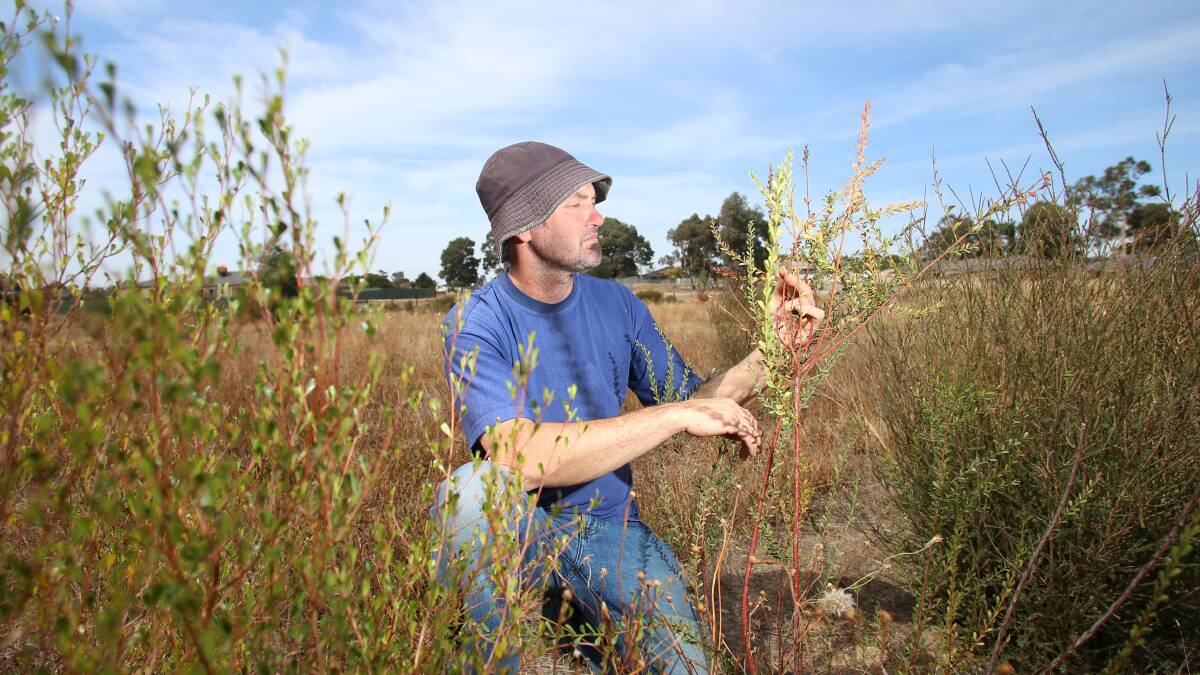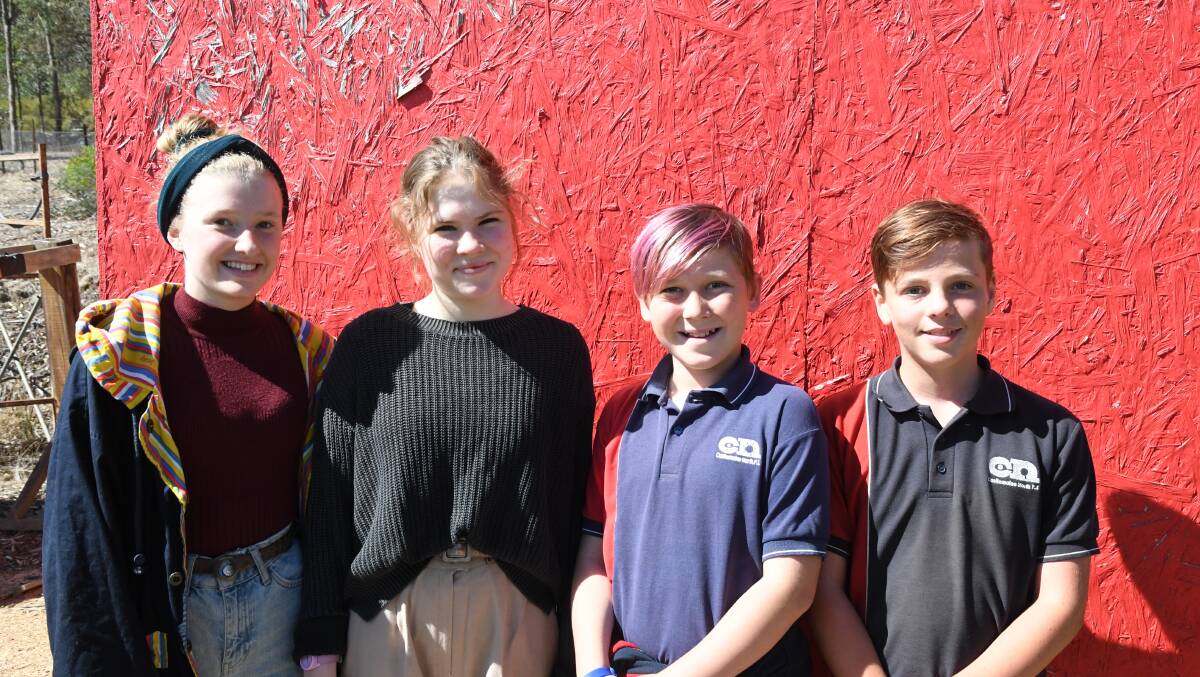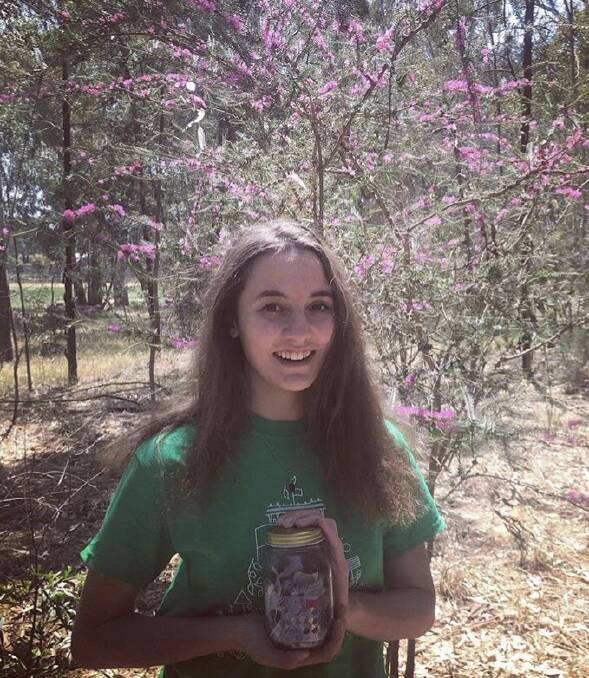It was a flat empty tract of land in Ironbark, filled with weeds. It's now a beautiful space, filled with trees and native bushes.
Subscribe now for unlimited access.
$0/
(min cost $0)
or signup to continue reading
The transformation of the Ironbark Gully has taken four years, over 16,000 seedlings and hundreds of volunteer hours.
It began when Jacky Vincent wanted to take his kid to school by bike. He lived at the bottom of the gully. His kids went to school at the top.
Read more: Vision for a green corridor through Bendigo
But there was no way to the school by bike, except via road.
He began the Ironbark Gully Friends, a group working to turn the space into a safe corridor for children, a healthy place for the community, and a safe space for wildlife.
A shared path is the focus of the project, forming a spine along the gully.

An annual shindig, and events for Clean Up Australia Day and National Tree Day have brought the community into the gully.
"It was over 15 hectares of land right in the city with no trees on it, and completely misused. There was no use at all for it," Mr Vincent said.
"It was a no-brainer that we needed to grow trees on it, we needed a path people will enjoy."
The transformation has been gradual, but the gully is starting to show signs of the care lavished upon it.
Plantings are springing to life and some of the trees are more than two metres tall. The group even saw a kangaroo in the gully recently.
Mr Vincent expects the gully to again have changed completely in another three years.
"It's going to be a very very different place with lots of trees and bushes and flowers and life happening there as well," Mr Vincent said.
"With the path going through it life will not be just from the plants but with people using the path."
Starting a movement
It began with Milou and a few other friends from Castlemaine.
It became a movement of thousands of school students across the country.

When Milou read an article about Swedish teenager Greta Thunberg, who was striking against climate change, she was blown away by Greta's integrity and bravery.
Milou mentioned it to a few friends, who were on board, and it grew from there.
They began to strike every Friday in November 2018, catching the train to Melbourne to protest outside the offices of a politician or company.
None of them are on social media though, so they couldn't track the growth of the movement they had started.
But on November 30, 2018, thousands of students joined in the protest in cities throughout Australia. The students protested again in March.
Their demands were simple: stop the Adani coal mine, no new coal or gas and 100 percent renewable energy by 2030.
Milou thinks their uncertain future was what touched a nerve for so many Australian students.
"For us, when you look into the future it's kind of a bit blurry," she said.
"We're uncertain of what we'll have, what resources, what planet, if we will be able to have children, if we will be able to have a job like our family has had.
"We felt that we really needed to do something for us and for everyone to actually restore a safe climate for our future."
Low-waste lifestyle
It's a drop in the ocean, but for Nakita Thomson cutting down her plastic consumption has made her feel a little less guilt about dramatic overconsumption she sees around her. Fast fashion, makeup, toiletries, eating out were all making more waste than she realised.

Reshifting her consumption has taken Ms Thomson years. Now her monthly waste fits inside a medium-sized mason jar. It's a useful mental image of how much landfill she makes each month.
"I had very environmental views, but never acted," Ms Thomson said.
"I'd just buy single use stuff and I wouldn't think about it. I'd buy a plastic water bottle, but at the same time I'm thinking this should be banned, we have taps, this is ridiculous."
Ms Thomson has built up her low waste efforts over time. Taking a reusable bag to the supermarket was an obvious first step. A keep cup another. She also made the switch to soap bars and shampoos, and learnt to make her own mascara.
Cutting her waste has required a bit of courage at times. Bringing her metal takeaway container to Maccas for chips or Noodle Box, Ms Thomson was convinced she'd look like "such a weirdo". But, she's used to it now.
"People do act weird, but they start to understand. Some people are really positive and love it but other people do get a bit weird about it," she said.
No matter what she does, Ms Thomson knows her efforts won't save the planet.
And she recognises it's hard for individuals to fly in the face of a society that's filled with single use plastics.
So, Ms Thomson wants to see reform put pressure on businesses, companies and manufacturers to reduce their waste, and all packaging made compostable or recyclable.
"We're creatures of convenience, we just go for whatever's easy. People just don't think about it, and I understand that, that's why I think there needs to be legislative reform," Ms Thomson said.
"We just buy something once, we throw it in the bin ... a lot of plastic is made out of oil and I just don't think we should be using such a precious resource on such a useless thing as a frozen Coke.
"The government needs to take responsibility and come in and say, 'Enough's enough, we can't deal with the actual waste', because it's just crazy."
Education is key
As teachers, Catelyn Pryor and Rhys Bull are passionate about educating people. And they care about the future of the children they teach.
When they realised how quickly their landfill bin filled up, Ms Pryor began to research how to cut down their waste.
The absence of information about where to find low-waste products that led them to begin posting online about their own tips and tricks. BendiGo Zero Waste page aims to give people pointers to reducing what they send to landfill.
The pair have also begun a stall at the Moonlight Markets. It's partly to sell some products they couldn't find in Bendigo, and partly to help educate people about how to cut down their waste.
They find most people start small, getting used to a small change before moving on to something else.
And Ms Pryor and Mr Bull don't pretend to live the perfect landfill-free lifestyle.
They still put out their landfill bin every now and then. For them, it's more about everyone doing their bit.
"We're far from perfect. I do still buy chocolate wrapped in plastic packaging," Ms Pryor said.
"For me it's about the students that I teach, they're our future. Just a whole heap of things that are going to affect their future.
"If everyone was making small changes ... then it would have that effect."
Have you signed up to the Bendigo Advertiser's daily newsletter and breaking news emails? You can register below and make sure you are up to date with everything that's happening in central Victoria.


